In a recent Wired article about Anthropic, there's a section where Anthropic's president, Daniela Amodei, and early employee Amanda Askell seem to suggest there's little connection between Anthropic and the EA movement:
Ask Daniela about it and she says, "I'm not the expert on effective altruism. I don't identify with that terminology. My impression is that it's a bit of an outdated term". Yet her husband, Holden Karnofsky, cofounded one of EA's most conspicuous philanthropy wings, is outspoken about AI safety, and, in January 2025, joined Anthropic. Many others also remain engaged with EA. As early employee Amanda Askell puts it, "I definitely have met people here who are effective altruists, but it's not a theme of the organization or anything". (Her ex-husband, William MacAskill, is an originator of the movement.)
This led multiple people on Twitter to call out how bizarre this is:
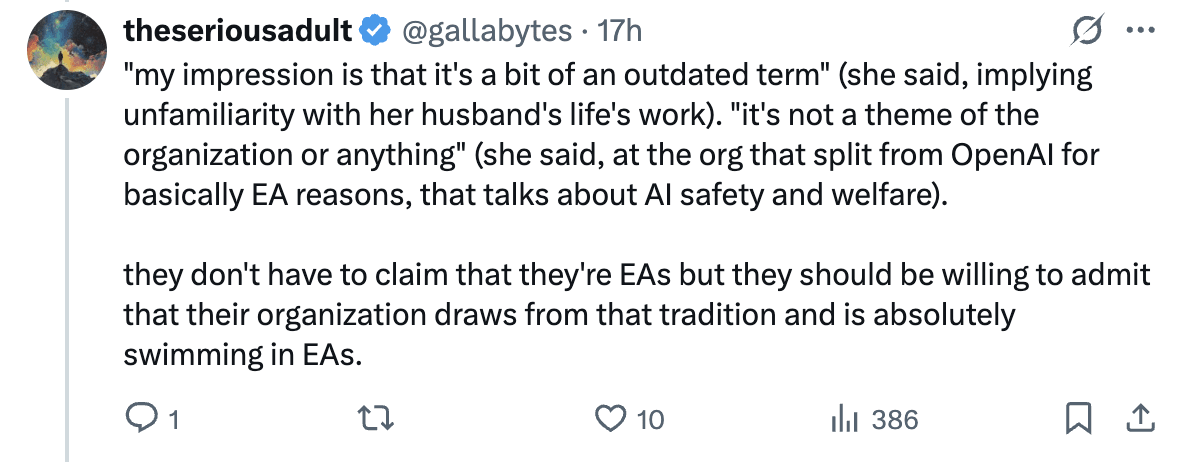
In my eyes, there is a large and obvious connection between Anthropic and the EA community. In addition to the ties mentioned above:
- Dario, Anthropic’s CEO, was the 43rd signatory of the Giving What We Can pledge and wrote a guest post for the GiveWell blog. He also lived in a group house with Holden Karnofsky and Paul Christiano at a time when Paul and Dario were technical advisors to Open Philanthropy.
- Amanda Askell was the 67th signatory of the GWWC pledge.
- Many early and senior employees identify as effective altruists and/or previously worked for EA organisations
- Anthropic has a "Long-Term Benefit Trust" which, in theory, can exercise significant control over the company. The current members are:
- Zach Robinson - CEO of the Centre for Effective Altruism.
- Neil Buddy Shah - CEO of the Clinton Health Access Initiative, former Managing Director at GiveWell and speaker at multiple EA Global conferences
- Kanika Bahl - CEO of Evidence Action, a long-term grantee of GiveWell.
- Three of EA’s largest funders historically (Dustin Moskovitz, Sam Bankman-Fried and Jann Tallinn) were early investors in Anthropic.
- Anthropic has hired a "model welfare lead" and seems to be the company most concerned about AI sentience, an issue that's discussed little outside of EA circles.
- On the Future of Life podcast, Daniela said, "I think since we [Dario and her] were very, very small, we've always had this special bond around really wanting to make the world better or wanting to help people" and "he [Dario] was actually a very early GiveWell fan I think in 2007 or 2008."
- The Anthropic co-founders have apparently made a pledge to donate 80% of their Anthropic equity (mentioned in passing during a conversation between them here and discussed more here)
- Their first company value states, "We strive to make decisions that maximize positive outcomes for humanity in the long run."
It's perfectly fine if Daniela and Dario choose not to personally identify with EA (despite having lots of associations) and I'm not suggesting that Anthropic needs to brand itself as an EA organisation. But I think it’s dishonest to suggest there aren’t strong ties between Anthropic and the EA community. When asked, they could simply say something like, "yes, many people at Anthropic are motivated by EA principles."
It appears that Anthropic has made a communications decision to distance itself from the EA community, likely because of negative associations the EA brand has in some circles. It's not clear to me that this is even in their immediate self-interest. I think it’s a bad look to be so evasive about things that can be easily verified (as evidenced by the twitter response).
This also personally makes me trust them less to act honestly in the future when the stakes are higher. Many people regard Anthropic as the most responsible frontier AI company. And it seems like something they genuinely care about—they invest a ton in AI safety, security and governance. Honest and straightforward communication seems important to maintain this trust.

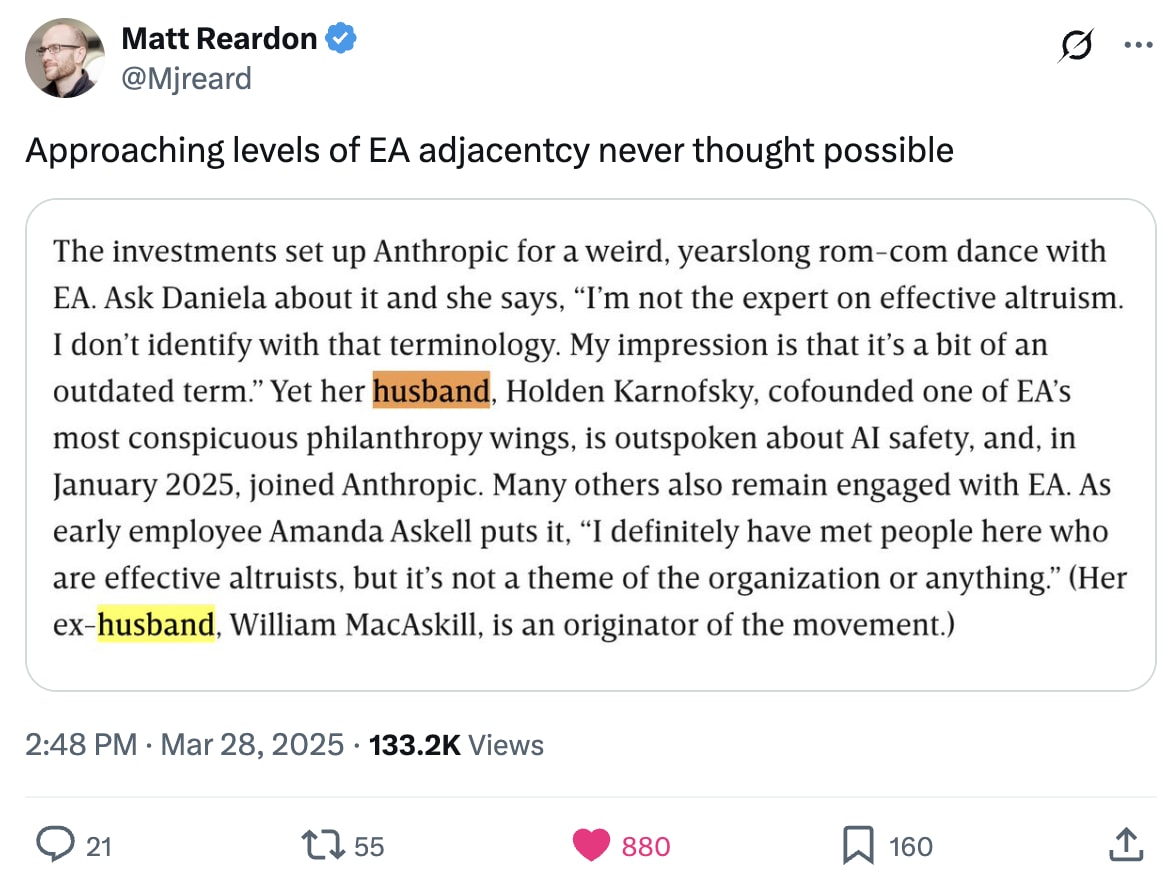

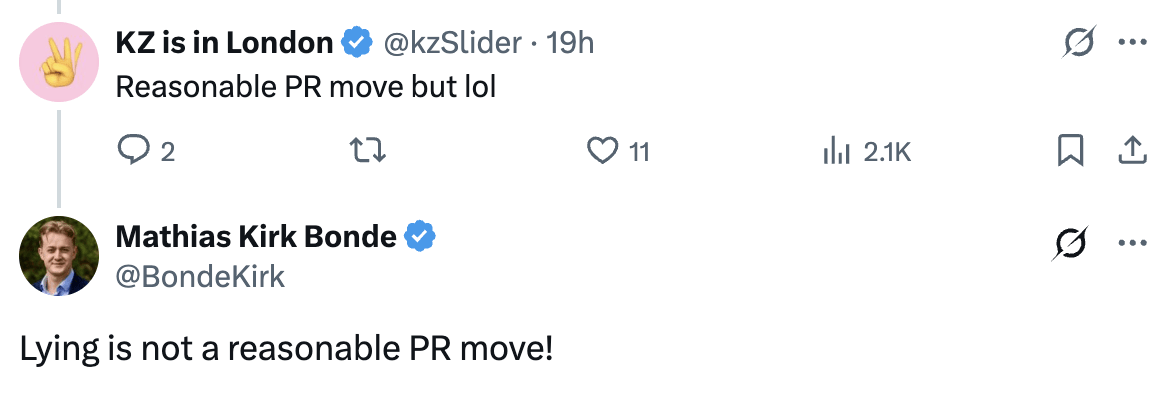
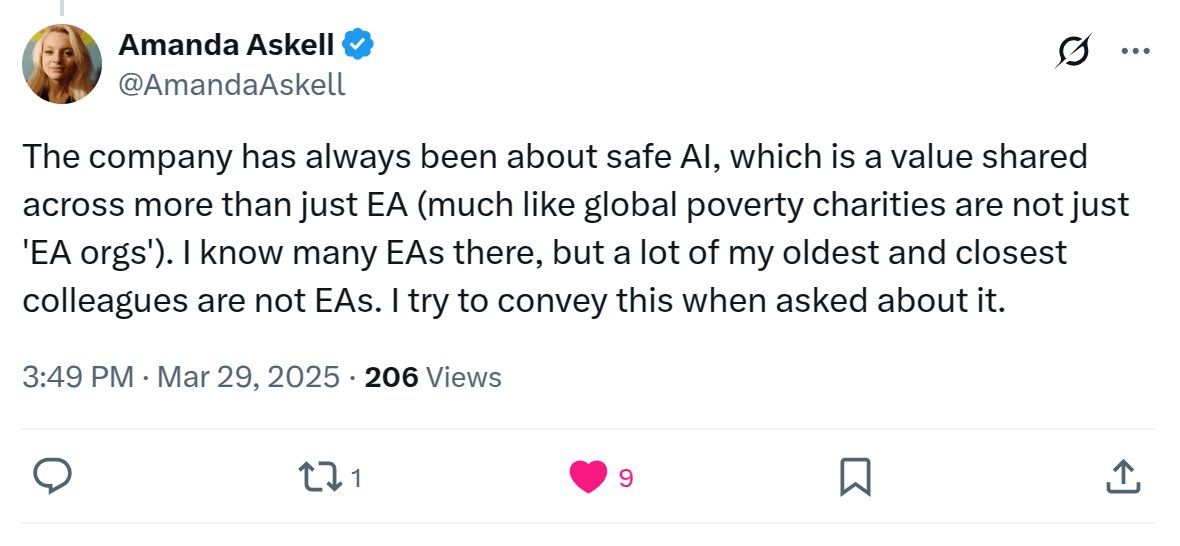
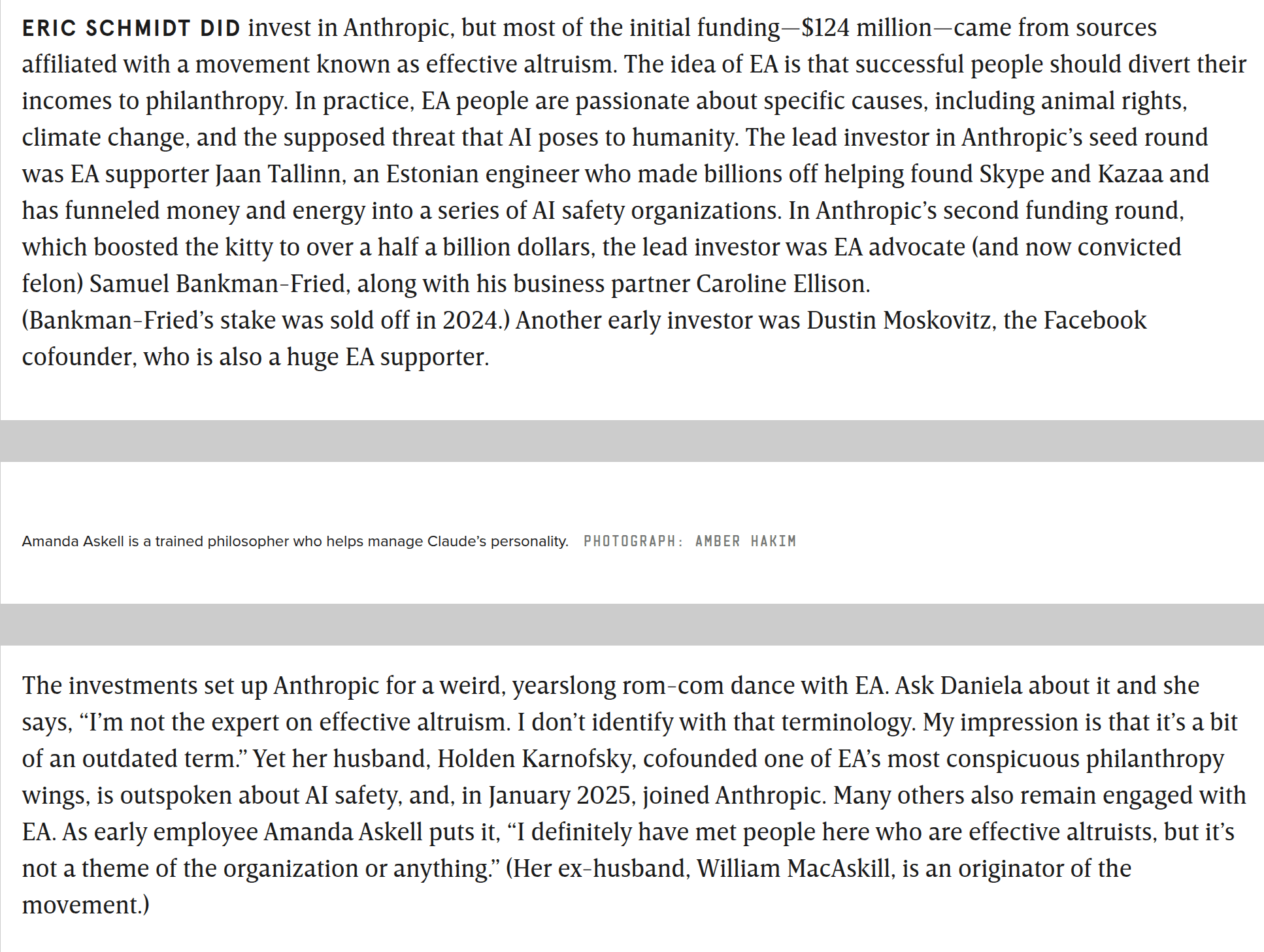
I think the people in the article you quote are being honest about not identifying with the EA social community, and the EA community on X is being weird about this.
I think the confusion might stem from interpreting EA as "self-identifying with a specific social community" (which they claim they don't, at least not anymore) vs EA as "wanting to do good and caring about others" (which they claim they do, and always did)
Going point by point:
This was more than 10 years ago. EA was a very different concept / community at the time, and this is consistent with Daniela Amodei saying that she considers it an "outdated term"
This was also more than 10 years ago, and giving to charity is not unique to EA. Many early pledgers don't consider themselves EA (e.g. signatory #46 claims it got too stupid for him years ago)
Amanda Askell explicitly says "I definitely have met people here who are effective altruists" in the article you quote, so I don't think this contradicts it in any way
https://x.com/AmandaAskell/status/1905995851547148659
That's false: https://en.wikipedia.org/wiki/Artificial_consciousness
Wanting to make the world better, wanting to help people, and giving significantly to charity are not prerogatives of the EA community.
I think that's exactly what they are doing in the quotes in the article: "I don't identify with that terminology" and "it's not a theme of the organization or anything"
I don't think they suggest that, depending on your definition of "strong". Just above the sceenshotted quote, the article mentions that many early investors were at the time linked to EA.
I don't think X responses are a good metric of honesty, and those seem to be mostly from people in the EA community.
In general, I think it's bad for the EA community that everyone who interacts with it has to worry about being liable for life for anything the EA community might do in the future.
I don't see why it can't let people decide if they want to consider themselves part of it or not.
As an example, imagine if I were Catholic, founded a company to do good, raised funding from some Catholic investors, and some of the people I hired were Catholic. If 10 years later I weren't Catholic anymore, it wouldn't be dishonest for me to say "I don't identify with the term, and this is not a Catholic company, although some of our employees are Catholic". And giving to charity or wanting to do good wouldn't be gotchas that I'm secretly still Catholic and hiding the truth for PR reasons. And this is not even about being a part of a specific social community.
You seem to have ignored a central part of what was said by Daniela Amodei; "I'm not the expert on effective altruism," which seems hard to defend.